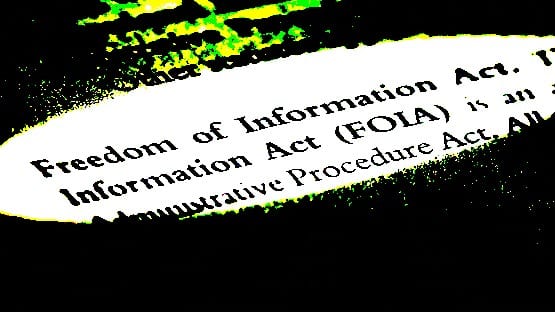
Six members of the Augusta County Board of Supervisors are trying to strong-arm the seventh into turning over his recordings of two years of closed sessions.
The eventual resolution to the matter could end up setting a new legal precedent in Virginia.
“I do not know of any advisory opinions or court decisions that have addressed a fact pattern like this one, so this would appear to present a novel question,” said Alan Gernhardt, the executive director of the Virginia Freedom of Information Act Advisory Council, in an email to AFP on Thursday.
The Board of Supervisors, on Wednesday, voted 6-0 to assert its right to “possession, custody and control of any and all public records” currently in the possession of board member Scott Seaton that include, “but are not limited to, any and all public records created during a closed meeting, public records created outside of any closed meeting pertaining to the subject of the closed meeting, any and all communications pertaining to the subject of the close of a closed meeting, and any and all communication mentioned information distributed and or discussed during a closed meeting, and recordings regardless of any FOIA exemption that might apply.”
It’s not entirely clear, but seems to be the case, that what the majority of the BOS wants is not just copies of the recordings that Seaton has made of the body’s closed meetings, but the originals.
Seaton, who was not present at Wednesday’s special Board of Supervisors meeting because of a previously scheduled family commitment, has insisted that he will not turn over possession of the original recordings absent a court order, and don’t be surprised if that court order will need to come from the state Supreme Court, eventually.
The reason for that: there basically is no precedent for what the Board of Supervisors is demanding in the resolution approved on Wednesday.
“Unfortunately, FOIA does not really answer the questions involved in this situation,” Gernhardt wrote in an email response to AFP, after we’d reached out to the FOIA Advisory Council for guidance on Thursday.
“The term ‘public record’ as defined in Code § 2.2-3701 includes all records ‘prepared or owned by, or in the possession of a public body or its officers, employees, or agents in the transaction of public business,’” Gernhardt wrote. “However, FOIA does not define the term ‘custodian,’ and my understanding is that in this instance, the individual board member has the records, but the question remains who is the legal custodian of the records (i.e., the member? the Board? the County as a legal entity?).”
Seaton, in an interview with the News Leader, said he would release copies of the recordings to a member of the public through a FOIA request, but added that he will continue to keep possession of the originals.
AFP has filed a FOIA request with Seaton early Thursday seeking access to copies of the recordings, and Seaton, in an email reply, said he “will comply with all lawful FOIA requests once it goes through the FOIA officer.”










